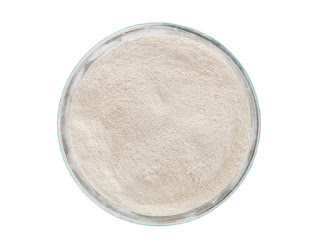Dicalcium Phosphate: An Essential Nutritional Supplement
Introduction
Dicalcium phosphate is a widely used nutritional supplement that provides essential minerals to humans and animals. It is a compound composed of calcium and phosphate, which are both vital for maintaining healthy bones, teeth, and overall body function. This article explores the uses, benefits, sources, and safety considerations associated with dicalcium phosphate, highlighting its importance as a dietary supplement.
1. Understanding Dicalcium Phosphate
Dicalcium phosphate, also known as calcium monohydrogen phosphate, is a white, odorless powder with high solubility in water. It is produced by the reaction of calcium carbonate and phosphoric acid, resulting in the formation of a compound that contains approximately 29% calcium and 23% phosphorus.
2. Benefits of Dicalcium Phosphate
2.1 Bone and Teeth Health Calcium and phosphorus are essential minerals for maintaining strong and healthy bones and teeth. Dicalcium phosphate provides a convenient source of these minerals, aiding in bone development, growth, and maintenance throughout life.
2.2 Nutritional Supplement Dicalcium phosphate is often used as a dietary supplement to ensure an adequate intake of calcium and phosphorus. It is especially beneficial for individuals who have limited access to dairy products or those with specific dietary restrictions.
2.3 Animal Feed Additive In the agriculture industry, dicalcium phosphate is commonly added to animal feed. It serves as a valuable source of calcium and phosphorus for livestock, promoting proper bone development and overall health in animals.
3. Sources of Dicalcium Phosphate
Dicalcium phosphate can be derived from various sources:
3.1 Manufacturing Process The industrial production of dicalcium phosphate involves the reaction between calcium carbonate and phosphoric acid. The resulting product is then purified and processed into a fine powder suitable for use in nutritional supplements and animal feed.
3.2 Natural Deposits Dicalcium phosphate can also be found in natural deposits, such as phosphate rock. These deposits undergo mining and processing to extract and refine the dicalcium phosphate for commercial use.
4. Safety Considerations
4.1 Recommended Dosage When using dicalcium phosphate as a nutritional supplement, it is important to follow recommended dosage guidelines provided by healthcare professionals or product labels. Excessive intake of calcium and phosphorus can have adverse effects on health, so moderation is key.
4.2 Allergies and Sensitivities Individuals with known allergies or sensitivities to calcium or phosphorus should exercise caution when considering dicalcium phosphate supplementation. Consulting a healthcare professional is advisable in such cases.
4.3 Quality and Purity To ensure safety and efficacy, it is crucial to obtain dicalcium phosphate from reputable sources that adhere to quality and purity standards. This helps minimize the risk of contamination or impurities in the product.
Conclusion
Dicalcium phosphate serves as an important nutritional supplement, providing a convenient source of calcium and phosphorus for maintaining bone and teeth health. Its versatility extends to the agriculture industry, where it contributes to the nutrition and well-being of livestock. However, it is essential to use dicalcium phosphate responsibly, following recommended dosage guidelines and considering individual health needs. By doing so, individuals can benefit from its valuable properties and support their overall well-being.
FAQs
Q1. Can dicalcium phosphate be used by individuals with lactose intolerance?
A1. Yes, dicalcium phosphate can be an alternative source of calcium and phosphorus for individuals with lactose intolerance who have difficulty consuming dairy products.
Q2. Is dicalcium phosphate suitable for vegetarians and vegans?
A2. Yes, dicalcium phosphate is a mineral-based compound and does not contain any animal-derived ingredients, making it suitable for vegetarians and vegans.
Q3. Can dicalcium phosphate be used as a substitute for calcium supplements?
A3. Dicalcium phosphate can be a source of calcium, but it is important to consult with a healthcare professional to determine the most appropriate calcium supplementation based on individual needs.
Q4. Are there any side effects associated with dicalcium phosphate supplementation?
A4. When used as directed, dicalcium phosphate is generally considered safe. However, excessive intake may lead to adverse effects, such as constipation or an imbalance in mineral levels.
Q5. Can dicalcium phosphate be used in pediatric nutrition?
A5. Dicalcium phosphate can be included in pediatric nutrition when recommended by healthcare professionals to meet the dietary needs of growing children.

评论
发表评论